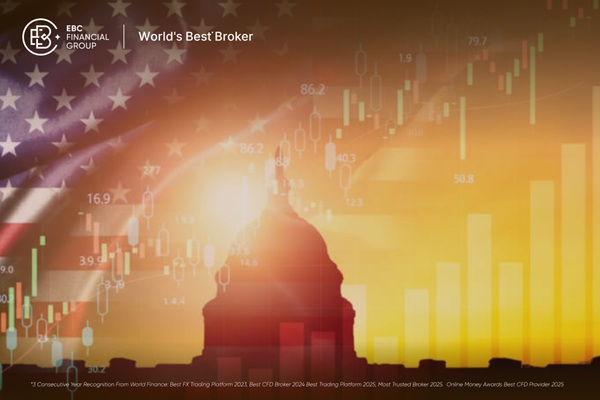Yes, copy trading is legal in most parts of the world, provided it’s conducted through approved, transparent, and compliant platforms. Regulations vary across regions, and each jurisdiction defines copy trading differently. Understanding these distinctions is essential for anyone looking to participate safely and legally.

To start, copy trading has become one of the most accessible ways for new investors to participate in the financial markets.
By automatically replicating the strategies of professional traders, individuals can benefit from expert insights without executing trades themselves.
What Is Copy Trading?
Copy trading is a form of automated or social trading that allows investors to mirror the actions of experienced traders in real time in the forex market.
When the lead trader opens, closes, or modifies positions, the same actions occur in your account in proportion to the funds you allocate.
Platforms often display performance metrics such as win rate, drawdown, historical returns, and risk scores. These allow you to assess whether a trader’s strategy fits your goals and risk appetite.
Because you retain control and are able to stop or adjust copying at any time as copy trading provides a bridge between active and passive trading for those who want exposure without managing every decision.
What Legality Means in Copy Trading

The legality of this system depends not on the act of copying itself, but on how the service is structured and managed.
For example:
If a platform allows users to voluntarily follow and copy traders, with full control to start or stop at any time, it’s generally considered legal.
If a service takes full control of client funds without transparency or consent, it may be viewed as unauthorized portfolio management which can cross legal lines.
In short, copy trading is legal when it’s transparent, voluntary, and gives investors full control over their own accounts.
Which Country Is Copy Trading Legal?
While specific rules differ across regions, copy trading is widely accepted in most developed and emerging financial markets.
Below is a simplified overview of where copy trading is permitted and how it’s typically treated:
| Region / Country |
Legal Status |
Regulatory Environment |
| United States |
✅ Legal (Highly Regulated) |
Strict standards on investor protection and trading conduct. |
| European Union |
✅ Legal |
Treated as an investment or advisory activity with disclosure requirements. |
| United Kingdom |
✅ Legal |
Permitted with transparent operations and clear risk warnings. |
| Australia |
✅ Legal |
Allowed under general trading laws and investor protection rules. |
| Singapore |
✅ Legal |
Operates under transparent frameworks prioritizing investor safety. |
| Japan |
⚠️ Restricted |
Legal only through approved services with licensing and clear disclosures. |
| China |
❌ Not Legal |
Public access restricted due to loca |
Copy Trading Insights & Data 2025

Demand for copy trading grew significantly in 2024: in many brokerage firms, copy trading now accounts for 10-20% of total trading volume.
Search interest in “copy trading” has risen about 20% year over year across multiple regions.
In several markets, platforms are now required to display detailed performance metrics, risk disclosures, and features like stop-loss, position limits, and real-time trade transparency.
These data show that the copy trading legal trend is toward stronger protection, higher transparency, and clearer standards for platforms offering copy trading.
Ensuring Legal and Safe Participation In Copy Trading
To engage in copy trading responsibly, investors should take these key steps:
Check Platform Credentials: Even if you don’t see regulator names, look for clear evidence the platform operates under financial laws such as visible terms, disclaimers, “risk of loss” statements, and performance history.
Review Terms of Service: Does the platform explicitly allow you to pause or stop copying? Are the costs, fees, and risks spelled out? If anything is vague, that signals possible non-compliance.
Search Local Laws/ Guidance: Many countries publish guidelines for financial services. If copy trading is mentioned in association with investment or automated trading laws, that’s a good sign.
Avoid Promises of Guaranteed Returns: Any claim of “risk free” or “guaranteed profit” should set off alarm bells. Real markets involve risk and loss.
Legal Risks & What to Avoid In Copy Trading
Here are common legal pitfalls:
Using offshore or unlicensed platforms that do not show adequate risk disclosure.
Copying traders with no verifiable history.
Accepting high leverage or poorly explained execution methods.
Failing to understand how taxation works in your jurisdiction on profits or losses from copy trading.
Being misled by marketing that overstates returns or conceals fees.
Why Legal Compliance Matters In Copy Trading
Trading with unlicensed platforms can lead to frozen accounts, withdrawal issues, or even total capital loss. Regulatory compliance isn’t just a formality, it’s what protects your money.
 Choosing a legal, transparent platform ensures:
Choosing a legal, transparent platform ensures:
You retain full ownership of your funds.
Trades are executed fairly and auditable.
You have legal recourse if issues arise.
These protections are crucial, especially for beginners entering the forex and CFD markets through copy trading systems.
Frequently Asked Questions (FAQ)
1.Is copy trading legal everywhere?
No. It is legal in most developed and many emerging markets, but some countries severely restrict it or require special permissions. Always confirm whether your region allows it and under what conditions.
2.Do users need a license to copy trade?
No. Individuals generally don’t need to be licensed. The platforms or service providers are the ones held accountable for legality, disclosures, and user protections.
3.Can I get in trouble for using an unlicensed platform?
Possibly. Risks include losing ability to enforce your rights, difficulty withdrawing funds, or even legal issues in markets where financial services must comply with certain laws.
4.How do I verify that a platform is legal?
Look for clear, public, written disclosure of risks, performance history, user control, and any statements that your trades are executed in your own account. If terms are vague or missing, consider it a warning.
5.Are profits from copy trading taxable?
Yes. In virtually all jurisdictions, profits (and sometimes losses) from trading activities must be reported according to local tax law. Keep trade logs, statements, and withdrawal records in case of audits.
Conclusion
Yes, copy trading is legal in most major financial markets, as long as it’s done through transparent, compliant, and well-regulated platforms.
If you use a platform that meets those criteria, copy trading can be both legal and a useful tool for learning and participating in the markets without having to manage every trade.
Always do your homework. If you’re unsure, seek independent legal or financial advice before investing.
Disclaimer: This material is for general information purposes only and is not intended as (and should not be considered to be) financial, investment or other advice on which reliance should be placed. No opinion given in the material constitutes a recommendation by EBC or the author that any particular investment, security, transaction or investment strategy is suitable for any specific person.

























